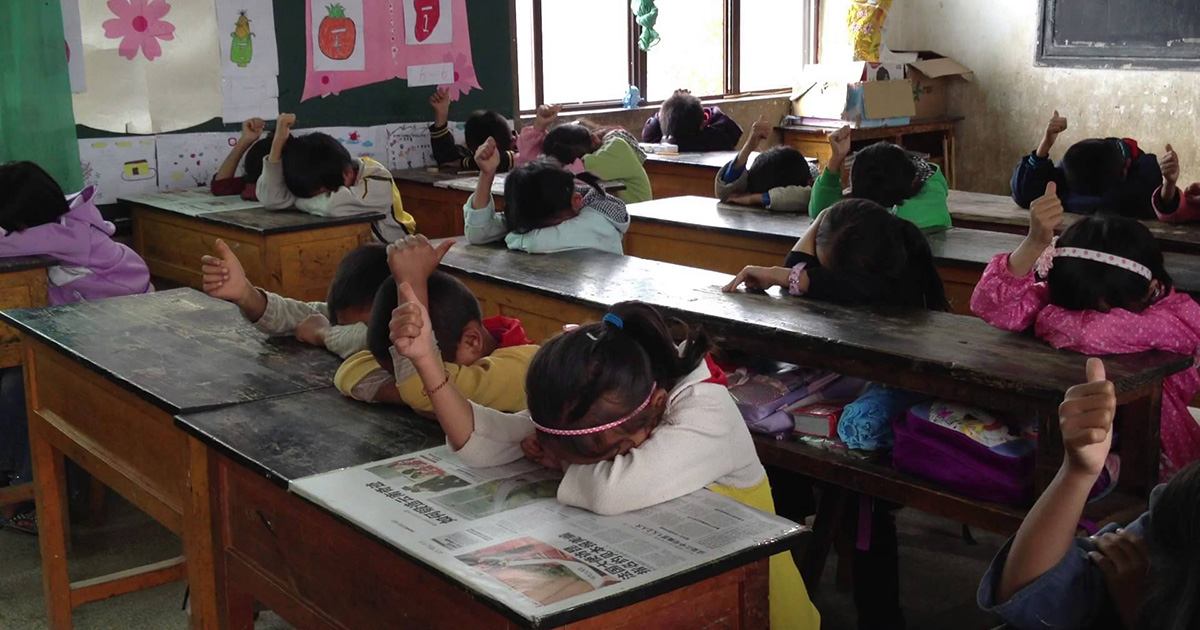7-up game - what is it?
The 7-up game is an old playground game, which has been played for decades. The objective of the game is to avoid being the 7th person to be selected by one of the players.
The classic version of this game goes as follows: all players gather in a circle and the player who previously had their birthday starts off. He or she says 'I spy with my little eye something that begins with C'.
All other players must then point at something in the room beginning with C (e.g., pencil case). If they come across something not beginning with C, they take a drink instead (usually half a glass/can). The player who gets it wrong drinks instead and play continues like this until there are only 7 players left.
The 7-up game can be played with any number of players. Usually, the first player who misses the turn drinks and play continues until there are only two players left, one of which is thus declared the winner.
Who invented this game?
The 7-up game was invented in the 1950s and became a popular playground game during that time. Some even say it is derived from an earlier US Army camp game played with 3 players, called '5 up' in which five soldiers were selected to drink instead of one soldier who got it wrong.
I spy - what does this expression mean?
The English expression 'i spy [with my little eye]' goes back to at least Elizabethan times when the expression was used in Shakespeare's Othello (1604). In modern-day usage, it means that a person has a secret goal or target they are looking for. However, these days this expression is more often associated with children's games rather than espionage!
7-up game in different countries/cultures
The rules for this game may differ in different regions or even within cities. However, in general, each player takes turns to name an item starting with the letter C (or what letter they choose).
If someone names something that starts with something other than C, they drink half a glass for instance. As soon as someone says "C-" instead of 'C' when naming things beginning with it, he or she drinks another half glass - so when everyone else has gone already, that player drinks two glasses.

This game is also interesting to play with differently-abled people (for example people in wheelchairs), because they can always point out something beginning with C (e.g., ceiling). The 7-up game is simple and fun and can be played anywhere. This makes it a great school subject lesson plan or even just during breaks in the classroom!
7-up game for kids
The 7-up game can be played by any number of players. If there are just a few it means that each player has to drink up more often, however, the opposite is also true - if there are many players then they have to drink less frequently. It's great fun to play with different age groups and so teachers sometimes use this game in classrooms as a class activity or even a lesson plan.
If you're using a smaller glass you should also shorten the length of time between drinks. So if one player misses their turn, everyone else must wait 5 seconds before taking a drink instead (i.e., 1...2...3...4...5). Then on the next miss, another player takes over and says 'I spy with my little eye something that begins with D'. Everyone else must point at something beginning with D. If someone points to a person instead they drink half a glass, if they point at a pencil case, for instance, they don't have to drink.
Variations of 7-up game
There are many variations of the 7-up game – one example would be where each player chooses his or her own letter. In this version, it's important to write down all the letters so there is no dispute later on about who drinks and who gets another turn.
Another version has been popularised by social media - players take turns naming things starting with C until only one remains - he/she wins! This is probably most suitable for players aged around 5 to 10 years.
How to make this game educational?
If you are a teacher and want to play this game with your class then you can change it into a great lesson plan or class activity. For example, you could encourage the students to think about things beginning with specific letters and write them down in their notebooks (or use a whiteboard). Then when they go home they will be able to remember everything they've learned.
You will need some basic game materials like small cans of soft drinks, glasses, and at least one piece of paper on the blackboard or whiteboard. You can also use this game to teach children some alternative letters if they find it hard to think of something starting with C (e.g., D, F, G - you could give them clues like 'something that is green' or 'something I eat').
Another idea for turning this game into a more educational activity would be to not only concentrate on letters but also colors. For example you ask questions like What object in the room begins with A? (apple), what color starts with B? etc. If they answer correctly then they don't drink anything; however, they answer incorrectly then they must drink.
How to make this game safe?
If you are playing the 7-up game with very young children (like those in preschool or kindergarten) then it would be best not to use alcohol. It's important to consider that some children may experience some side effects if they drink too much, for example, vomiting or nausea which can cause dehydration.
So try and find out what types of games they like most and then adapt them into something suitable for your age group (5-10 years olds).
What if you have less than 7 players?
If there are only a few players you should also change the rules of the 7-up game. For example, every time someone misses their turn they must drink half a glass instead of a whole one. If you have less than 5 players then it could work well with 2 glasses - every time someone misses their turn they drink from both glasses!
In all cases, you should take care to avoid accidents and make sure everyone understands what is going on. When playing any drinking games make sure to keep an eye on your children – this will help them stay safe and healthy while having fun!

Playing 7-up games outside
You could also play this game outside. For example, if it's a sunny day you can have everyone sitting on the grass and have a big picnic. So every time someone misses their turn they should take a glass of wine from the bottle and drink it quickly. Then just refill the half-empty glasses with full ones so everyone has something to drink from.
How to win this game?
You can try playing 7-up as an individual or as part of a group – whichever works best for you! Try your best not to miss any turns because then you will be having drinks every single time anyone else takes their next turn!
If you want to make sure that no one gets too drunk then don't start counting until all players are finished drinking. For example, if someone misses their turn after 2 minutes you shouldn't start counting for another 5-8 minutes so people have time to recover. You could even give them a break in between turns which will be good for keeping everyone safer and healthier!
The aim of the game is to stay sober while everyone else gets drunk playing 7-up. So try not to miss your turn and keep an eye on the other players - don't let them drink too much or take extra turns when they haven't missed one yet!
This drinking game also works well with two players but it's most suitable for groups of 4-7 who can play together comfortably and safely.
Are there games similar to 7-up?
There are other games that are very similar to 7-up. For example, in the game Never have I ever you also try and avoid taking certain actions when it's your turn. Another good example is 'I drink therefore I am' which is basically about avoiding drinking for as long as possible - you can find out more about alternative games on our site!
Final words
The 7-up game is one of the popular drinking games that can be played by young and old people alike. Kids love to play this game with their friends or parents even though it's a little bit different from most games they've learned. You will need some basic game materials like small cans of soft drinks, glasses, and at least one piece of paper on the blackboard or whiteboard.